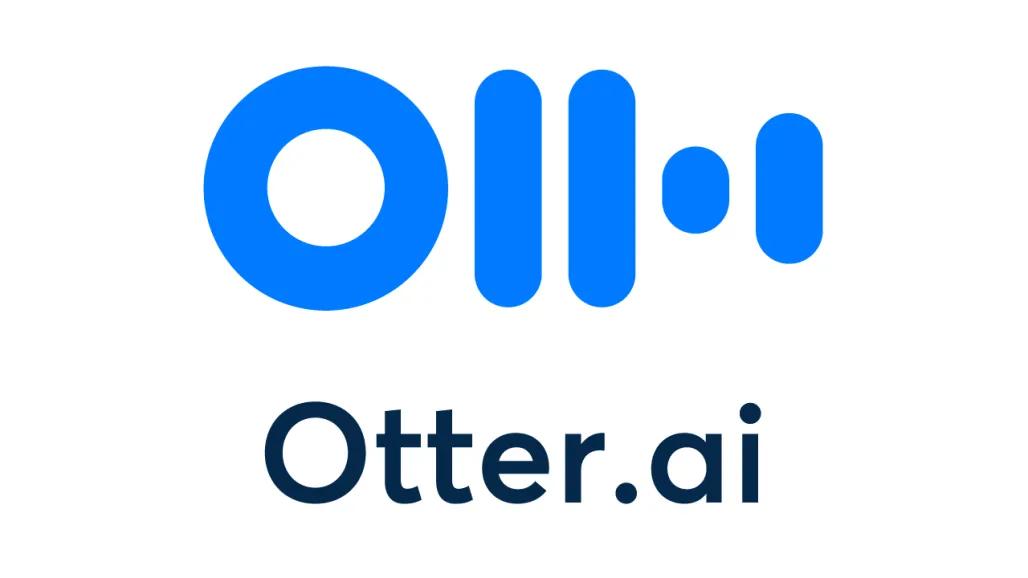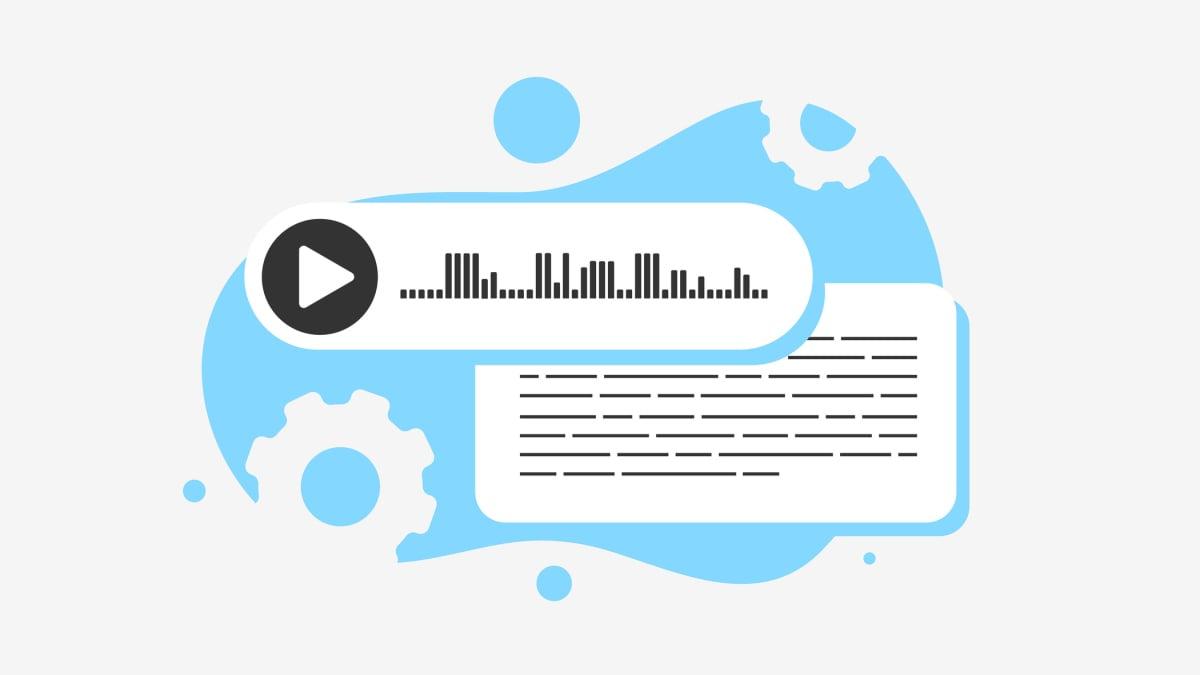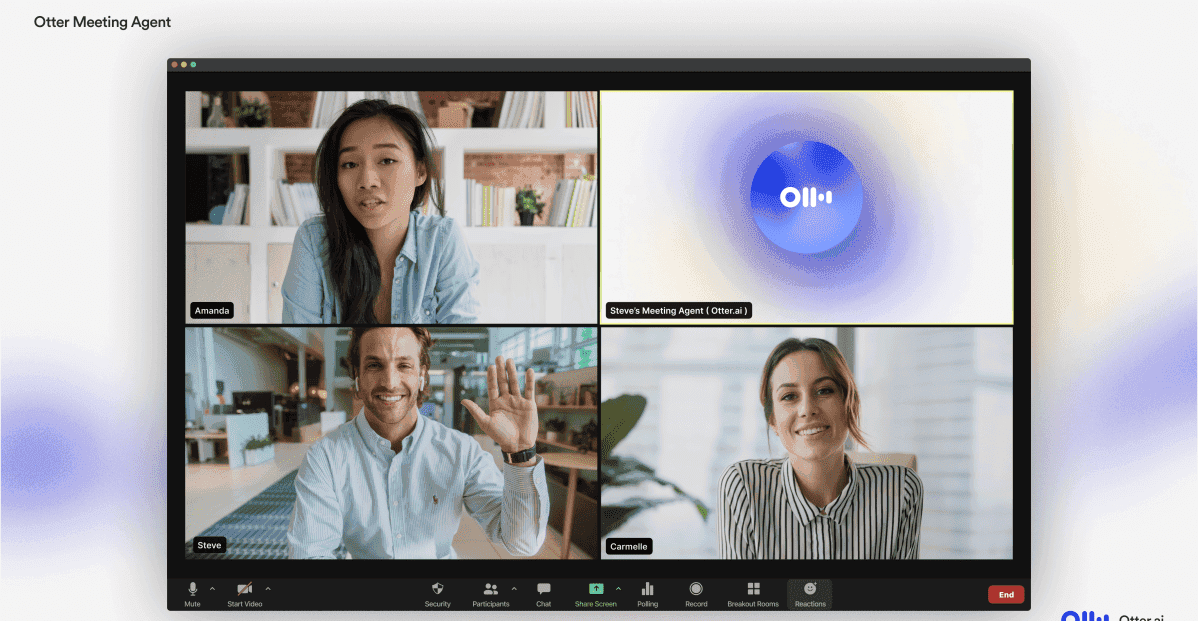Otter.ai Faces Class-Action Lawsuit Over Alleged Privacy Violations in AI-Powered Transcription Service
5 Sources
5 Sources
[1]
Using Otter Notetaker? This Lawsuit Claims It Broke Privacy Laws
The complaint argues that as Otter Notetaker failed to disclose when it was active and recording meetings, when other members had not given consent, it was in violation of federal and California privacy laws. Popular AI transcription tool Otter has been hit by a federal lawsuit which alleges it "recorded, accessed, read, learned, and utilized" the contents of people's conversations without getting the necessary consent first. It also claims Otter used these conversations to train its machine learning technology. The complaint, filed in US District Court for the Northern District of California, focuses on one of Otter's products, Otter Notetaker, which produces real-time transcriptions of Google Meet, Zoom, and Microsoft Teams meetings. The suit says that Otter recorded not only account holders who use Otter Notetaker but meeting participants who do not subscribe to Otter's services. It argues that as Otter failed to disclose when it was active and recording meetings, when the other members had not given consent, it is in violation of both federal and California privacy laws. These include the Electronic Communications Privacy Act of 1986 and the California Invasion of Privacy Act. It is seeking class-action status. The plaintiff, Justin Brewer, participated in a Zoom meeting in February 2025, where Otter Notetaker was used to transcribe a meeting he attended. As he did not know he was being recorded or give his consent to the transcription, the complaint says this allowed Otter to "wiretap his communications." Though Otter's privacy policy clearly states that it "de-identified" its audio recordings, meaning the recordings were altered to remove the identifying data, it pointed to research on the ineffectiveness of these techniques. The complaint also highlights that one of Otter's competitors, Read.ai, permits any participant, including those who do not use Read.ai, to stop recording during a meeting. This isn't the first time privacy issues have been raised about Otter's services. In 2024, the University of Massachusetts banned Otter.ai, as its IT department said it violated the state's all‑party consent law. NPR, which covered the lawsuit, noted that a Politico journalist who interviewed a Uighur human rights activist raised concerns in 2024 that the Chinese government could attempt to access the transcriptions of his conversations with political dissidents. PCMag has reached out to Otter for comment.
[2]
Transcription app Otter.ai accused of illegal recordings
Vidchat hosts probably know Otter.ai records everything and feeds it into AI. Their guests may not Voice transcription service Otter.ai has found itself on the wrong end of a lawsuit that claims it trains its speech recognition tech without securing permission to do so. A complaint [PDF] filed last week on behalf of plaintiff Justin Brewer, points out that the company offers a service called the "Otter Notetaker" that records participants in Google Meet, Zoom, and Microsoft Teams, to transcribe whatever is spoken and produce meeting summaries. The suit points out that Otter's privacy policy states that the company uses meeting participants' voices to train its speech recognition AI, while the company's Privacy & Security FAQ does likewise. Otter accountholders should therefore know their every utterance in an online meeting recorded by NoteTaker helps to improve the company's AI. But the suit notes Otter records all utterances in a meeting - those made by accountholders and those made by meeting participants who do not have an Otter account. Otter's services never ask those guests for consent to have their voices recorded or fed into a machine learning model, the complaint claims. Otter recently celebrated reaching $100 million annual revenue. The lawsuit suggests Otter obtains financial benefits from this practice. Lead plaintiff Justin Brewer also claims Otter violated his privacy rights, an important element of the suit as it claims the company's use of meeting guests' voices falls on the wrong side of the USA's federal Electronic Communications Privacy Act, the Computer Fraud and Abuse Act, and several California laws. The filing anticipates a defence in which Otter says its accountholders should inform guests about its use of data before meetings. The plaintiffs are having none of that. "Otter tries to shift responsibility, outsourcing its legal obligations to its accountholders, rather than seeking permission and consent from the individuals Otter records, as required by law," the filing states. The law firms mentioned in the complaint hope to start a class action and say over 100 plaintiffs share the same gripe as Brewer. The complaint argues that the case is both viable and deserves to be heard in the District Court for the Northern District of California. The Register sought comment from Otter and will update this story if we receive a substantive reply. ®
[3]
Otter.ai Sued for Allegedly Recording Work Calls Without Consent
A California suit claims the app is recording private conversations and using them to train its AI. Otter.ai, the maker of AI-powered transcription and note-taking tools, is facing a class-action lawsuit in California over alleged privacy violations. The suit, filed Friday in federal court by San Jacinto resident Justin Brewer, claims that Otter.ai is recording private conversations without obtaining consent from all the calls' participants and then uses those recordings to train its AI. According to the complaint, Brewer doesn’t have an Otter account but joined a Zoom meeting in February where the company's Otter Notetaker software was running. He says he had no idea the service would capture and store his data or that the call would be used to train Otter’s speech recognition and machine learning models. The lawsuit specifically targets Otter Notetaker, the company’s tool that records and transcribes Zoom, Google Meet, and Microsoft Teams calls in real time. Normally, if someone with an Otter account joins a virtual meeting, the software asks the host for permission to record the call, but it doesn’t automatically check with everyone else in the call. The lawsuit also claims that if the host has integrated Otter with their Zoom, Google Meet, or Microsoft Teams accounts, an Otter Notetaker bot can slip into the meeting without getting explicit consent from anyone on the call, not even the host. “Crucially, Otter does not obtain prior consent, express or otherwise, of persons who attend meetings where the Otter Notetaker is enabled, prior to Otter recording, accessing, reading, and learning the contents of conversations between Otter accountholders and other meeting participants,†says the complaint, first reported by NPR. According to the suit, this violates state and federal wiretap and privacy laws. It also alleges that users’ conversations are being used to train Otter's AI models for the “financial benefit†of the company. “While we are reviewing the matter, it is important to note that Otter does not initiate recordings on its own. Recording only occurs when initiated by an Otter user, and our Terms of Service make clear that users are responsible for obtaining any necessary permissions before doing so,†a representative from Otter.ai told Gizmodo in an emailed statement. The lawsuit pushed back against that argument, accusing Otter of dodging responsibility by shifting its legal obligations onto its account holders. Otter.ai was founded in 2016 as AISense and has since grown to more than 25 million users and surpassed $100 million in annual recurring revenue. But even before this lawsuit, users were already voicing concerns. In one case last year, an AI researcher said Otter recorded a Zoom call with investors and later sent him a transcript that included “intimate, confidential details†discussed after he had already left the meeting. Politico also reported that its China correspondent reportedly discovered that Otter shares user data with third parties after using the service during an interview with a Uyghur activist.
[4]
Class-action suit claims Otter AI secretly records private work conversations
Otter.ai is a Mountain View, Calif.-based tech company that uses artificial intelligence to generate speech-to-text transcriptions. It has become a popular tool for transcribing virtual office meetings. Source: Otter hide caption A federal lawsuit seeking class-action status accuses Otter.ai of "deceptively and surreptitiously" recording private conversations that the tech company allegedly uses to train its popular transcription service without permission from the people using it. The company's AI-powered transcription service called Otter Notebook, which can do real-time transcriptions of Zoom, Google Meet and Microsoft Teams meetings, by default does not ask meeting attendees for permission to record and fails to alert participants that recordings are shared with Otter to improve its artificial intelligence systems, according to the suit filed on Friday. The plaintiff in the suit is a man named Justin Brewer of San Jacinto, Calif., who alleges his privacy was "severely invaded" upon realizing Otter was secretly recording a confidential conversation. The suit, filed in the U.S. District Court for the Northern District of California, claims Otter's covert recording violates state and federal privacy and wiretap laws. It seeks to represent others in California who have had chats unknowingly shared with Otter to "derive financial gain." Neither Brewer's legal team nor a spokesperson for Otter returned requests for comment. In recent months, new privacy questions have dogged Otter as it has become increasingly deployed in workplaces around the world. Some 25 million people now use its AI transcription tools, which have recorded and processed more than 1 billion meetings since the company was founded in 2016, the company says. Users have shared horror stories on platforms such as X and Reddit about Otter's automated recording tools backfiring. Last year, an AI researcher and engineer said Otter had recorded a Zoom meeting with investors, then shared with him a transcription of the chat including "intimate, confidential details" about a business discussed after he had left the meeting. Those portions of the conversation ended up killing a deal, The Washington Post reported. Politico's China correspondent has written about interviewing a Uyghur human rights activist using Otter and realizing that the company shares user data with third parties, raising fears over the possibility that the Chinese government could attempt to access raw transcriptions of conversations with dissidents. Otter has said it does not share any data with foreign governments or law enforcement agencies. On Reddit, users have complained about Otter joining meetings automatically when the service is linked to workplace calendars and recording chats without consent. It's a phenomenon also highlighted by the lawsuit. If someone has an Otter account and joins a virtual meeting, the software will typically ask the meeting's host for permission to record, but it does not by default ask all the other participants. "In fact, if the meeting host is an Otter accountholder who has integrated their relevant Google Meet, Zoom, or Microsoft Teams accounts with Otter, an Otter Notetaker may join the meeting without obtaining the affirmative consent from any meeting participant, including the host," the lawsuit alleges. "What Otter has done is use its Otter Notetaker meeting assistant to record, transcribe, and utilize the contents of conversations without the Class members' informed consent." Otter claims that before the audio of meetings is fed into its machine learning systems to help improve an AI speech recognition feature, it is "de-identified," a method by which data can be anonymized. Yet the suit filed on Friday raises concerns about Otter's ability to do this effectively, saying the company provides no public explanation of its "de-identifying" process. "Upon information and belief, Otter's deidentification process does not remove confidential information or guarantee speaker anonymity," the lawsuit argues.
[5]
Lawsuit against Otter AI claims it records meetings without consent
Transcription tool Otter AI has long had an "assistant" service to transcribe video meetings. "Otter Notetaker" can enter a Zoom, Google Meet, or Microsoft Teams call and jot down what participants are saying in real-time. Now, a class action lawsuit filed Friday claims Otter's Notetaker doesn't just record people who want the recordings, but also those who haven't subscribed to its services or consented to being recorded. Not only that, but the suit states that Otter doesn't disclose to those who set up Otter Notetaker that the transcriptions are used to train Otter's automatic speech recognition and machine learning models. California resident Justin Brewer is filing this lawsuit on behalf of himself and other Californians and Americans, saying Otter intercepted his conversations. The suit claims Otter violates both federal and California law, such as the Electronic Communications Privacy Act of 1986 and the California Invasion of Privacy Act. The suit states that Brewer doesn't have an Otter account but participated in a Zoom meeting in February where Otter Notetaker was used. He wasn't aware that Otter would obtain and keep that data and wasn't informed that the service would use this data to train its speech recognition and machine learning tools. Brewer didn't consent to this and "had his privacy severely invaded and been exposed to the risk and harmful conditions created by Otter's violations of federal and California law," the suit reads. Otter's privacy policy states that it trains its AI technology on "de-identified" audio recordings. It also says it gains explicit permission to access the conversation for training, yet the suit claims that Otter Notetaker asks for consent to join and record a meeting from the meeting host (if the host doesn't have an Otter account). It doesn't ask to join the meeting from any other participant, nor does it allow anyone but the meeting host to disable Otter Notetaker, according to the filing.
Share
Share
Copy Link
Otter.ai, a popular AI transcription tool, is facing a class-action lawsuit for allegedly recording and using private conversations without proper consent, potentially violating federal and state privacy laws.
Otter.ai Faces Legal Challenge Over Privacy Concerns
Otter.ai, a popular AI-powered transcription service, is at the center of a federal lawsuit alleging significant privacy violations. The class-action complaint, filed in the U.S. District Court for the Northern District of California, accuses the company of recording and utilizing private conversations without obtaining proper consent from all participants
1
2
3
.
Source: PC Magazine
The Allegations
The lawsuit focuses on Otter's "Otter Notetaker" feature, which provides real-time transcriptions for virtual meetings on platforms like Google Meet, Zoom, and Microsoft Teams. According to the complaint, Otter allegedly:
- Recorded conversations of both account holders and non-subscribers without explicit consent
1
2
. - Failed to disclose when the service was active and recording meetings
1
. - Used recorded conversations to train its machine learning technology without informing participants
3
4
.
Legal Implications
The plaintiff, Justin Brewer, claims that Otter's practices violate several laws, including:
- The Electronic Communications Privacy Act of 1986
- The California Invasion of Privacy Act
- The Computer Fraud and Abuse Act
1
2
5
The lawsuit argues that by not seeking permission from all meeting participants, Otter effectively "wiretapped" their communications
1
4
.Otter's Response and Privacy Policies
Otter.ai has stated that it does not initiate recordings independently and that its Terms of Service require users to obtain necessary permissions
3
. However, the lawsuit contends that Otter is attempting to shift responsibility onto its account holders rather than fulfilling its legal obligations2
.The company's privacy policy mentions that audio recordings are "de-identified" before being used for AI training. However, the complaint questions the effectiveness of this process and cites research challenging such anonymization techniques
1
5
.Related Stories
Broader Industry Implications
This lawsuit highlights growing concerns about privacy in the age of AI and remote work technologies. Some key points include:

Source: NPR
- The University of Massachusetts banned Otter.ai in 2024 due to similar privacy concerns
1
. - Competitors like Read.ai allow any participant to stop recording during a meeting, emphasizing the importance of user control
1
. - The case raises questions about the responsibilities of tech companies in obtaining consent and protecting user privacy
2
3
4
.
Financial and User Impact
Otter.ai has experienced significant growth, reaching over 25 million users and surpassing $100 million in annual recurring revenue
2
3
. The lawsuit suggests that the company obtains financial benefits from its alleged practices, potentially at the expense of user privacy2
5
.
Source: Mashable
As the legal proceedings unfold, this case could have far-reaching implications for AI-powered transcription services and the broader landscape of privacy in digital communication tools.
References
Summarized by
Navi
[2]
Related Stories
AI Assistants Inadvertently Sharing Confidential Information in Workplace Settings
03 Oct 2024•Technology

Otter.ai Introduces AI-Powered Meeting Agents to Revolutionize Virtual Collaboration
26 Mar 2025•Technology

Google Faces Class-Action Lawsuit Over Gemini AI's Alleged Privacy Violations
12 Nov 2025•Policy and Regulation

Recent Highlights
1
ByteDance's Seedance 2.0 AI video generator triggers copyright infringement battle with Hollywood
Policy and Regulation

2
Demis Hassabis predicts AGI in 5-8 years, sees new golden era transforming medicine and science
Technology

3
Nvidia and Meta forge massive chip deal as computing power demands reshape AI infrastructure
Technology





